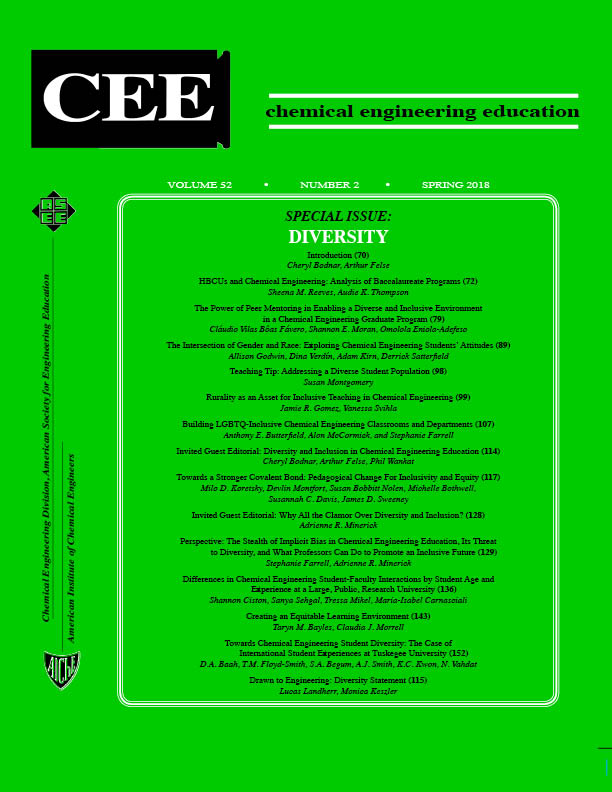Towards a Stronger Covalent Bond: Pedagogical Change for Inclusivity and Equity
Keywords:
Inclusion, diversity, consequential learning, studioAbstract
We describe progress on a comprehensive, programmatic change initiative whose goal is to create an inclusive culture that fosters diversity and a shift towards more meaningful, consequential work. While this initiative has several elements that target different aspects of unit practices and culture, we focus here on pedagogical change. Our design-based implementation research approach involves a continually interacting set of components, including: theory, implementation, and data collection, analysis and interpretation. We show how the threads of identity, academic success and professional formation in the core chemical engineering curriculum can be intentionally interwoven to form a network of practices that fosters student achievement (one atom in the covalent bond) as well as diversity and social justice (another atom).


